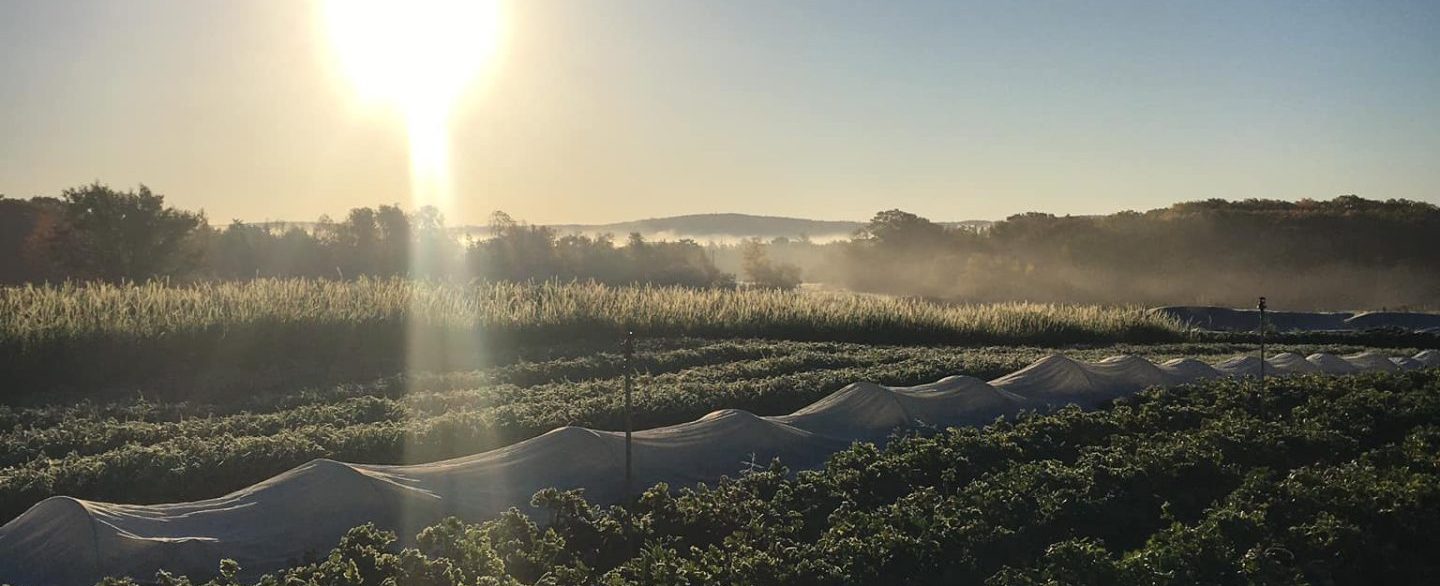Cultivating the Organic Opportunity for Canadian Farmers and Consumers
Economic and Environmental Impacts of Organic Agriculture and Policy Recommendations for Canada
Tripling organic acreage could unlock $1.73 billion for Canadian farmers over 10 years.
Canada’s agriculture sector is facing increasing challenges, including trade tensions, increasingly frequent extreme weather events, and rising financial pressures. These challenges highlight the need to diversify and strengthen the resilience of agricultural production, distribution, and trade.
A new report from the Organic Task Force shows organic farming is a powerful tool to boost farm profitability, meet rising domestic and global demand, diversify trade, and advance Canada’s climate and biodiversity goals.
The Organic Task Force, convened by Canadian Organic Growers, brought together farmers, researchers, and policy experts to identify the impacts, costs, and returns of expanding organic farming in Canada and to provide evidence-based policy recommendations.
Why This Matters
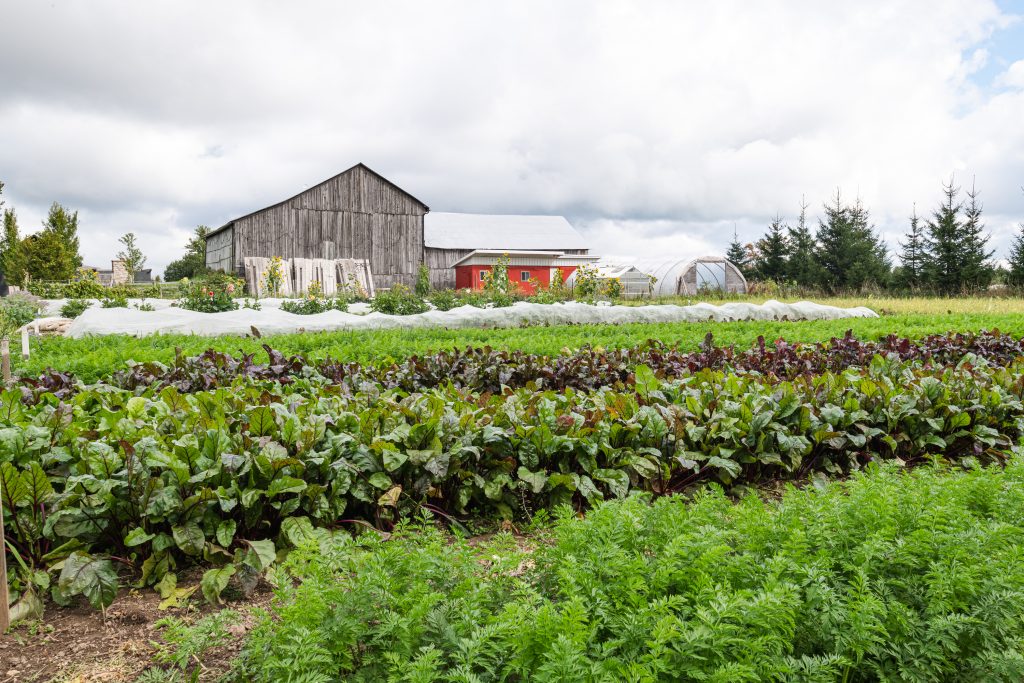
This report finds that organic farming in Canada:
- Canada’s organic market is $9+ billion (up from $6.38 billion in 2019; fifth largest globally).
- Domestic production has stagnated, widening the supply gap and driving up imports. Expanding Canadian organic production would allow Canadian farmers to capture more of this growing market, both at home and abroad.
- Strategic public investment can unlock billions in farm income, strengthen competitiveness, and deliver measurable environmental benefits.
Key Findings of the Report
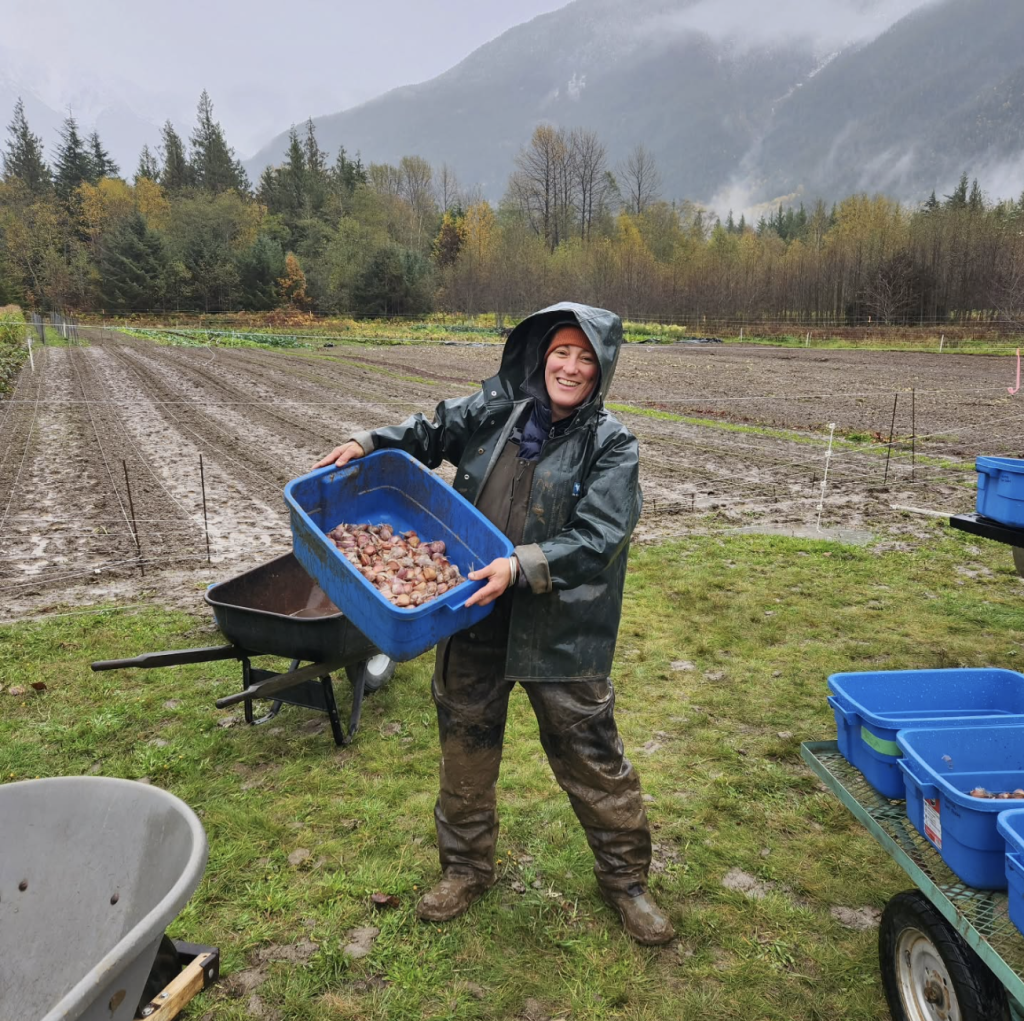
This report finds that organic farming in Canada:
- Provides higher net returns for farmers (117% higher net return per acre)
- Has high short-term transition costs (most return values are negative during the transition period).
- Benefits biodiversity (greater bird, plant, and insect biodiversity).
- Maintains and improves soil health (higher soil organic carbon (SOC) levels on average).
- Reduces greenhouse gas (GHG) emissions by 35% per acre and 15% per unit of production.
- Uses up to 50% less energy and is up to 40% more energy efficient, based on long-term Prairie trials.
- Uses key beneficial management practices (BMPs) including more diversified rotations, including cover crops and green manures, and managed habitat, at higher rates than on non-organic farms, delivering specific ecological and agronomic benefits.
Organic Growth Helps Canada Meet Policy Goals
The OTF used these findings to estimate the economic and environmental impacts of tripling organic acreage in Canada, and found that such an increase would:
- Generate $1.73 billion in additional net farm income over 10 years, or $1.73 million annually, including transition costs.
- Every $1 invested in organic farm transition generates nearly $8 in additional net returns for farmers.
- Avoid GHG emissions of 769 kt CO₂e annually, offsetting 1% of Canada’s agricultural emissions.
- Increase biodiversity and maintain and improve soil health across more farmland.
- Increase the number of certified organic farmers by 40%.
- Reduce synthetic nitrogen (N) fertilizer use by 79.5 million kg N/year, contributing 14% of Canada’s fertilizer emissions reduction target.
- Reduce pesticide use by 1.8 million kg active ingredient/year.
- Strengthen Canadian organic supply, enabling farmers to better meet growing domestic and global market demand.
- Create opportunities for producers to adapt to the impacts of climate change.
Read the analysis in our economics, environment, growth projections, and policy technical reports.
How does Canada stack up on organic spending?
The Organic Task Force report shows Canada is falling behind our international peers.
Canada’s major agricultural competitors have dedicated policies and programs to promote and expand organic production—and they invest significantly more in their organic sectors than Canada.
- The United States spends 8 times more per acre annually on organic programs
- The European Union spends over 200 times more on average
It’s time for Canada to seize the organic opportunity.
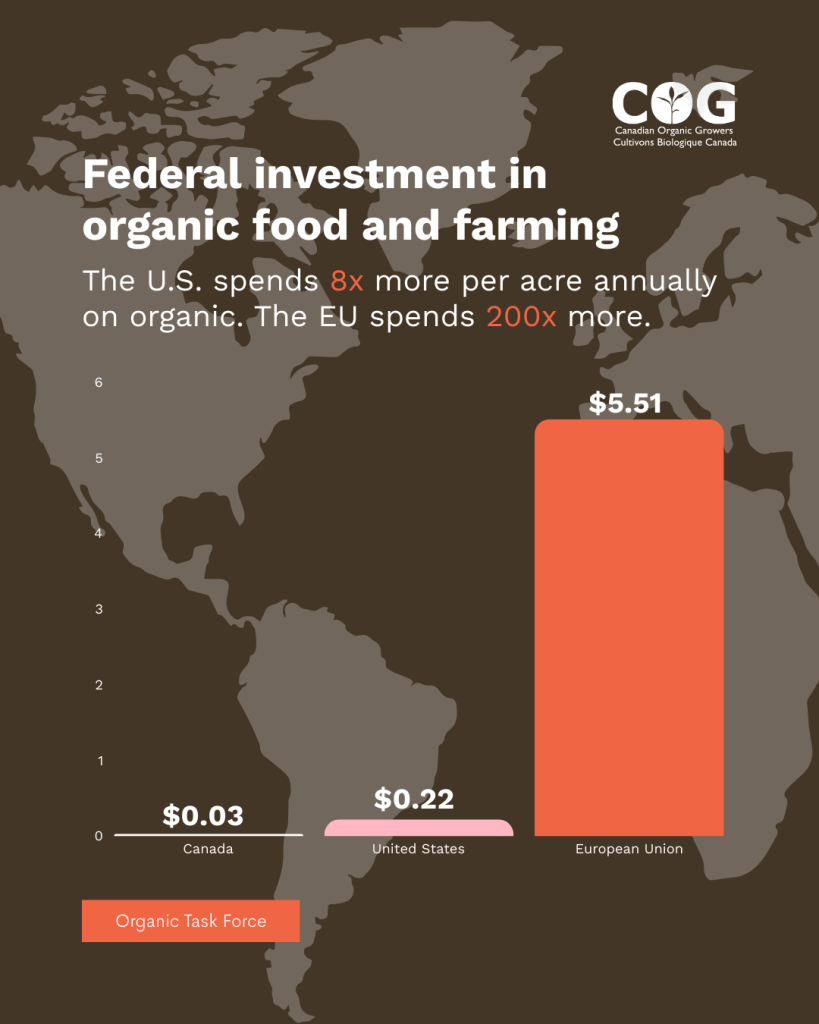
Policy Recommendations
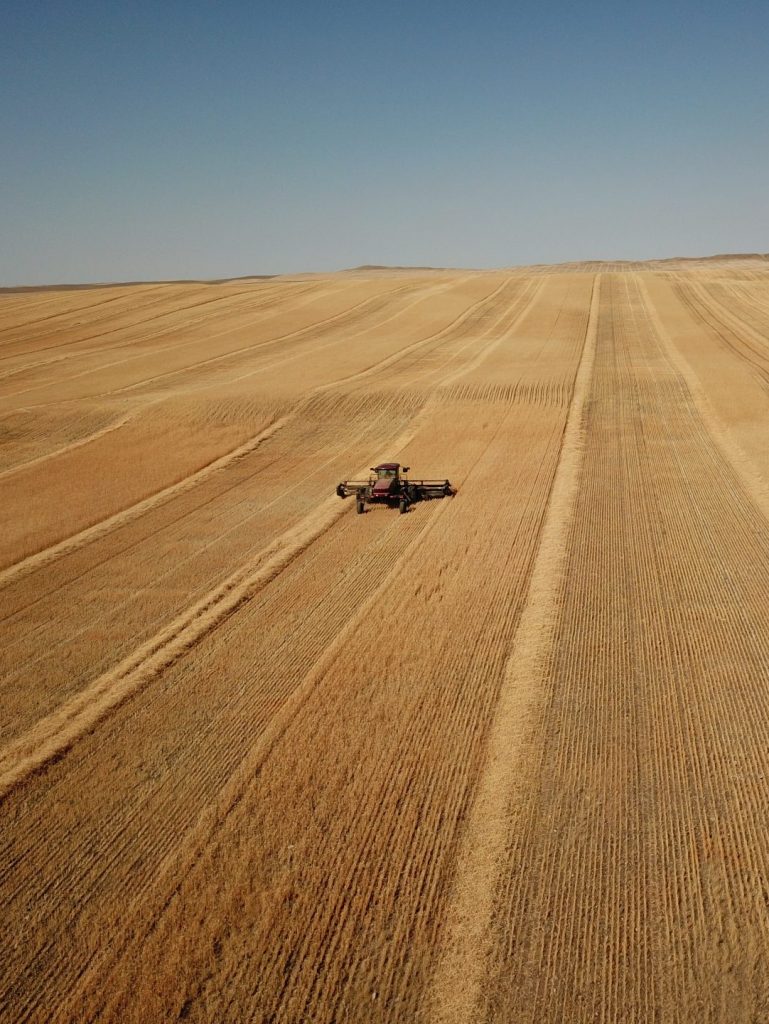
The report calls for public investment of $68.5 million annually to triple and strengthen organic agriculture in Canada, focused on:
- Reducing barriers to transition through financial and technical support for new organic farmers.
- Helping existing organic farmers close yield gaps, improve profitability, and maximize environmental benefits and innovation.
- Building organic markets.
Implementation can leverage the Agricultural Policy Framework, ensuring provincial flexibility with national coordination.
Task Force Members
Organic Task Force Co-Chairs

Ferme Tournesol – Dorion-Vaudreuil, QC
Dan’s thoughts are split between farm spreadsheets and seeds. On the spreadsheet front Dan runs the Farmer Spreadsheet Academy to help farmers learn tools and tricks to be better farm managers. He is co-author of Crop Planning for Organic Vegetable Grower. On the seed front, Dan is the host of the Seed Growers podcast and blogs about farming and seeds at www.danbrisebois.com. Dan Brisebois is also a founding farmer at Tourne-Sol co-operative farm in Les Cèdres, Quebec. Tourne-Sol grows organic seeds for an online seed store and a wholesale rack program; and grows organic vegetables for 500 weekly veggie baskets.

The Homestead Farm – Goodfare, AB
Lisa Kitt runs a mixed organic farm in Goodfare, Alberta with her husband Donovan. They farm on the same land as her father-in-law, Jerry Kitt, who has been certified organic since the 1980s. Between the two operations they run grass-finished cattle, pastured pork, pastured poultry, a two-acre market garden, laying hens, and a micro-green operation. Lisa was raised on an organic beef and alfalfa seed farm, laying some strong foundations for organic farming. She is involved with Young Agrarians through their apprenticeship program, inspiring and teaching the next generation of farmers. In the past she has worked with the National Farmers Union young farmers and an intro into policy work.

Moose Creek Organic Farm – Oxbow, SK
Ian and Jo-Anne Cushon along with their son Liam, operate Moose Creek Organic Farm (MCOF). Certified organic since 1989, they grow wheat, oats, flax, hemp and alfalfa seed on over 5,000 cultivated acres in the thin black soil zone of south eastern Saskatchewan. Ian is a past president of the Saskatchewan Organic Development Council and a former advisory board member of the Organic Agriculture Centre of Canada. Ian has made many presentations and written numerous newspaper articles about organic farming. In 2011, Country Guide magazine named Ian as one of the 12 most influential farmers in Canada. In 2024, Ian and Jo-Anne received an outstanding organic farmer award from Sask Organics in recognition of their contribution to organic farming.

Canadian Organic Growers
Katie Fettes is the Director of Policy and Research of Canadian Organic Growers, where she manages COG’s policy and research portfolios. Previously, she worked in federal US agriculture policy and research, as well as in agriculture globally, where she co-founded several organizations supporting farmers in mitigating and adapting to climate change through agroecology. Katie has her Masters in Conflict, Security and Development from King’s College London.
Research Team

OACC, Field Crops Lead
Margaret is a consultant doing technical writing on pasture management and organic agriculture research. She did her M.Sc. on the improvement of sheep pasture in Nova Scotia and has since worked as a project manager and communicator in agriculture. Her experience includes working as Program Manager at the Organic Agriculture Centre of Canada (OACC) at Dalhousie University, managing the Organic Science Cluster national research program. In 2022 Margaret left her university job to farm, working as Field Manager at Holdanca Farms, a diverse pastured livestock operation. She also has experience working with farmers in West and East Africa, investigating the issue of farm succession in Canada, and has managed and led farmers’ markets in Newfoundland and Nova Scotia.

UBC, Horticulture Lead
Tristin Bouwman is a consultant and researcher specializing in sustainable food production. Tristin has experience in farm-level emissions modelling, farm management as a commercial grower, food insecurity research in Africa, and critically evaluating climate-smart agriculture interventions. Tristin holds degrees from Wageningen University in The Netherlands and the University of Guelph and is currently pursuing doctoral studies at UBC’s Faculty of Land and Food Systems.

University of Guelph, Economics Lead
Aaron’s research program examines the environmental and economic tradeoffs of innovative agricultural practice adoption using spatial bioeconomic and transportation modelling. He has examined a variety of practices throughout Canada and the United States, including wetland management, bioenergy, and genomics. His current research focuses on beneficial management practices, like 4R nitrogen management, precision agriculture, and cover crops, along with organic production.

UQAT, Co-Benefits Lead
Stéphanie Lavergne, agr., M.Sc. is a PhD candidate in Agriculture at Dalhousie University in the Department of Plants, Food, and Environmental Sciences. She is studying soil health and soil organic carbon dynamics under short intensive rotations in eastern Canada. She was hired as an assistant professor of Organic Agriculture at Université du Québec in Abitibi-Témiscamingue in June 2024, where she was previously a research officer in organic field crop production.

University of Manitoba, Holos Modeling
Sarah Wilcott has been working at the University of Manitoba since 2019 as a research technician for long-term agronomic studies. She completed an MSc in soil science from the University of Saskatchewan after working as a geologist in Western Australia for several years. Sarah manages the Glenlea long-term rotation study and has enjoyed the experience of growing many different crops, and the challenges that come with that. She also enjoys sewing, gardening, and reading.

Riverside Natural Foods, Holos Modeling
Shenali Madhanaroopan is the Corporate Impact Analyst at Riverside Natural Foods, home of the organic snack brand, MadeGood. Shenali holds a Master of Environmental Studies (MES) in Sustainability Management from the University of Waterloo. She specializes in analytical research and comprehensive life cycle modeling of organic production systems and value chains. Shenali was a keynote speaker at the Canada Organic Trade Association Organic Summit (2020), and has spoken at LCAFoods (2022), the Organic Council of Ontario’s Guelph Organic Conference (2023), and other fora. As a member of the Organic Task Force, Shenali advocates for rigorous research and data analysis to highlight the benefits of organic agriculture. Shenali’s passion lies in bridging the organic research and data gap in Canada, enhancing organic visibility and accessibility in retail, and educating individuals on the true nature and significance of organic practices.

EFAO, Field Crops Analyst
Jackie aims to contribute to a more just and equitable food system. She manages EFAO’s Small Grains Program, helping to encourage farmers to realize the benefits of diversified crop rotations. She is passionate about innovation and collaborative research across the agri-food industry, and connecting farmers with the resources they need to improve the sustainability of their operations. She also facilitates connections between 2SLGBTQIA+ farmers across Ontario. Jackie holds a B.Sc. in Agriculture and M.Sc. in Sustainable Cropping Systems from the University of Guelph, where she studied cover crops and soil health. She has worked on a broad range of research projects based in diverse settings such as the terrace farms of Nepal, soybean fields in Nebraska, and corn fields and crop biotechnology labs here in Ontario. A two-year stint as an Agriculture Journalist bolstered Jackie’s appreciation for the hard work and problem-solving efforts of farmers as they work to grow safe and nutritious food for a growing population while mitigating the impacts of climate change. When not in the office, Jackie is likely growing organic vegetables at Root Radical on Howe Island, out training for an ultra-marathon, or home snuggling her foster cats.

CETAB+, Holos Modelling
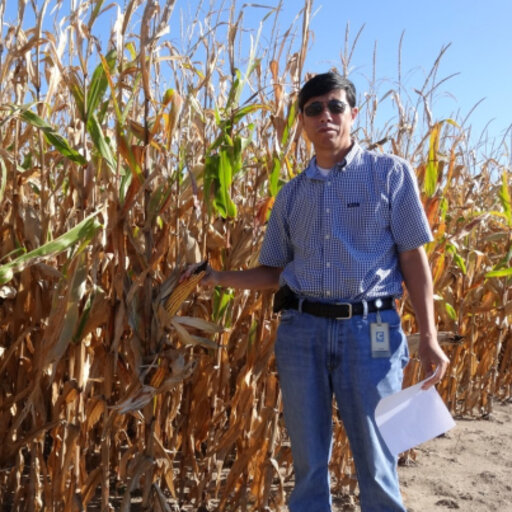
AAFC, Research Scientist
Dr. Xueming Yang is a research scientist in the AAFC Harrow Research and Development Centre where he studies soil health with special intereste in the relationships between agronomic management practices (tillage, rotation, cover cropping) and soil carbon and nitrogen charateristics and dynamics.
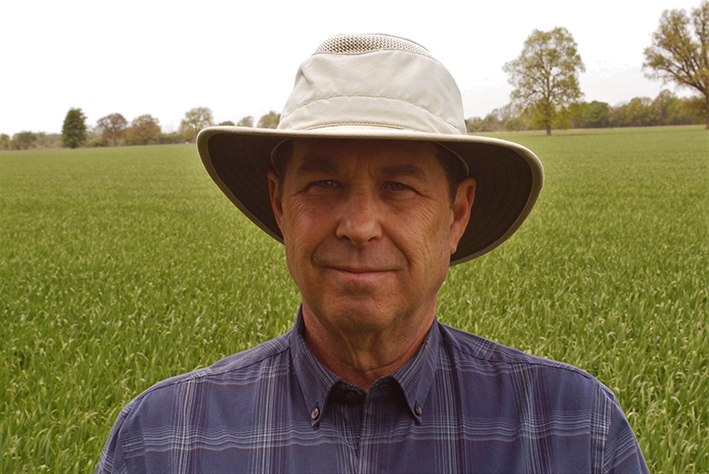
AAFC, Research Scientist
Dr. Drury is a soil biochemist who develops soil, crop and nutrient management practices which improve crop productivity while enhancing environmental quality.
Policy Team

York University, Policy Analysis Lead
Rod MacRae is a food policy analyst and retired professor from York University in Toronto. He was the lead author of the first National Organic Strategic Plan (2002).

The New Farm Centre, Policy Advisor
Brent worked as a human rights investigator, election observer and journalist on four continents before becoming a farmer. For the past fifteen years he has run The New Farm, a wholesale vegetable operation near Creemore, Ontario, with his wife, Gillian. The farm supplies specialty retail stores and some of the best restaurants in Canada. Brent speaks often on food and farming issues, and has written for the Huffington Post, Globe and Mail, and other publications. His memoir of starting a sustainable farm was a national bestseller. Brent is the former President of the Ecological Farmers Association of Ontario.

The New Farm Centre, International Policy
Sophie is the Director of Programs and Operations at the New Farm Centre for Climate Action, where she works on the organization’s strategic direction, program design and implementation, and operations. Her previous work as a consultant, researcher, and project manager has been at the intersections of social, economic, and environmental justice issues, taking an interdisciplinary approach to food systems, DEI, and leadership development work. Her food systems experience includes work as a Fulbright Researcher in Morocco, collaboration on development strategies for a farmworkers rights organization, team coaching related to food justice in the GTA, behavioural insights research on Canadian food policy, and food access programming in Vermont. Sophie is also a project coach for the Leading Social Justice Collective, is a board member at the Fair Finance Fund, and holds an MBA from U of T’s Rotman School of Management.

COTA, Policy Liaison
My-Lien Bosch is the Government Relations and Regulatory Affairs Manager at the Canada Organic Trade Association (COTA). She leads on policy, regulatory and advocacy on behalf of COTA for the organic sector, including the Organic Action Plan. Prior to joining COTA, she was the Director of Technical Services at the Animal Nutrition Association of Canada with responsibilities including technical, regulatory and certification. She has a MSc in Food Studies from the University of Wageningen.
Advisors

University of Guelph
Ralph C. Martin grew up on his family farm in Wallenstein, ON. After 4-H, his formal education includes a B.A. and an M.Sc. in Biology from Carleton University and a Ph.D. in Plant Science from McGill University. His research and teaching began at the Nova Scotia Agricultural College, in 1990, when he realized students teach him too. In 2001, he founded the Organic Agriculture Centre of Canada to coordinate university research and education pertaining to organic systems, across Canada. In 2011, he was appointed as Professor and the Loblaw Chair in Sustainable Food Production at the Ontario Agricultural College, University of Guelph. In 2019, he retired and published his book, Food Security.

Dalhousie University
Dr. Andrew Hammermeister is the Director of the Organic Agriculture Centre of Canada (OACC) and Associate Professor in the Faculty of Agriculture at Dalhousie University, Nova Scotia, Canada. The OACC is the leading national facilitator of organic science and communication in Canada. Andrew is the Science Director for the Organic Science Cluster, the coordinated national initiative for organic research in Canada. He sits on the national organic standards review committee, the Sustainability Sector Engagement Table (AAFC-Industry co-led) and several other organic sector committees both nationally and internationally. Andrew is the coordinator and student advisor as well as a course instructor for the Certificate of Specialization in Organic Agriculture offered by Dalhousie University. Andrew received his B.Sc. in Agriculture specializing in Soil Science from the University of Saskatchewan, and his M.Sc. in Land Reclamation and Ph.D. in Applied Ecology both from the University of Alberta.

Dalhousie University
Derek Lynch is Professor of Agronomy and Agroecology at Dalhousie University Faculty of Agriculture (DAL-AC). He teaches on soil science, organic field crop management and urban agriculture at DAL-AC. From 2005-2015 he held the position as Canada Research Chair in Organic Agriculture. He has worked with many farms and producer groups across Eastern Canada to assist with production challenges and assess the ecological and environmental footprint of the farming systems. Current research projects in Atlantic Canada and Quebec are examining how crop management practices impact soil carbon, soil health and soil biota dynamics. Derek has published over 75 scientific papers and book chapters based on his research. He also writes short articles for wider audiences on the linkage of soil management to global sustainability.

Université de Laval
Dr. Caroline Halde, agr., PhD, is an Associate Professor of organic agriculture and agroecology at Université Laval. She grew up on an organic dairy and grain farm in Quebec. She leads the Agroecology Lab at Université Laval, a dynamic team of about fifteen students and research technicians with multidisciplinary interests in field crop and forage agronomy, cover crops and soil health. She has contributed to the establishment of a Graduate Microprogram in Agroecology, newly offered at Université Laval. She is actively involved in provincial and national committees aiming to develop and support the sector of organic agriculture.

University of Manitoba
Martin Entz is professor of Cropping Systems and Natural Systems Agriculture at the University of Manitoba, teaching at the diploma, degree and graduate levels. He was educated at the University of Manitoba and the University of Saskatchewan as well as Adelaide University in South Australia. Martin’s research focuses on ecologically-integrated farming systems. He leads the Glenlea Long-Term Rotation Study – Canada’s oldest organic vs conventional farming systems experiment, which celebrated 25 years in 2016. He is also founder of the U of M’s Natural Systems Agriculture program, which explores cropping systems based on processes found in nature — specifically the natural grassland ecosystem of prairie Canada. Martin also works on “soil restoration agronomy” projects. His lab currently supports the Canadian Foodgrains Bank in their conservation agriculture development work in Eastern Africa. Closer to home, Martin is part of Sustainable Canada Dialogues, a group of 60 Canadian scholars who propose evidence-based climate solutions and actions. Martin and his family enjoy their small farm, located near Libau, Manitoba.

UBC
Dr. Sean Smukler is an Associate Professor, Chair of Agriculture and Environment, and Director of the Centre for Sustainable Food Systems in the Faculty of Land and Food Systems at the University of British Columbia. He also currently leads the Sustainable Agricultural Landscapes Laboratory. His research primarily focuses on developing ways to help farmers adapt to climate change and improve the sustainability of their farming practices specifically as they relate to the soil. Sean received a Ph.D. in Ecology from the University of California, Davis where he also did his undergraduate studies. He holds an MSc. in Forest Soils from the University of Washington, Seattle.

